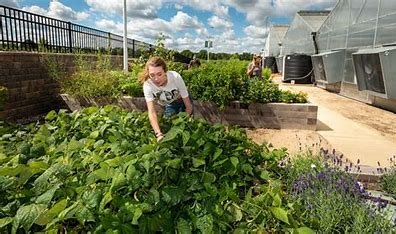Urban farming and community gardens are transforming cityscapes around the world, promoting sustainable living and providing numerous benefits to communities.

1. Food Security:
Urban farming and community gardens help address food insecurity by providing fresh, locally-grown produce to urban residents. They reduce the dependency on distant food sources and offer a reliable food supply.
2. Environmental Benefits:
- Green Spaces: Urban farms and gardens create green spaces in densely populated areas, improving air quality, reducing urban heat island effects, and enhancing biodiversity.
- Sustainability: These initiatives promote sustainable agricultural practices, such as composting, water conservation, and organic farming.
3. Community Engagement:
- Social Connections: Community gardens foster social interactions and strengthen community bonds. They provide a space for residents to come together, share knowledge, and collaborate.
- Education: These spaces offer educational opportunities for people of all ages to learn about gardening, nutrition, and environmental stewardship.
4. Economic Benefits:
- Local Economy: Urban farms can stimulate local economies by creating jobs, supporting local markets, and encouraging entrepreneurship.
- Cost Savings: Growing food locally can reduce grocery bills and provide affordable, nutritious options for families.
5. Health and Wellness:
- Physical Activity: Gardening is a great form of physical exercise, promoting better health and well-being.
- Mental Health: Working in a garden can reduce stress, anxiety, and depression, providing a therapeutic outlet for many individuals.
6. Innovation and Technology:
- Vertical Farming: Innovative practices like vertical farming and hydroponics are making it possible to grow food in urban environments with limited space.
- Smart Agriculture: The use of technology, such as sensors and data analytics, is optimizing urban farming practices and increasing yields.
7. Policy and Support:
- Government Initiatives: Many cities are supporting urban farming through policies, grants, and incentives to encourage more people to engage in urban agriculture.
- Community Programs: Non-profit organizations and community groups are playing a crucial role in establishing and maintaining urban farms and gardens.
Conclusion:
The rise of urban farming and community gardens is a testament to the growing awareness of the need for sustainable living and self-sufficiency. These initiatives offer numerous benefits, from improving food security and environmental sustainability to fostering community engagement and enhancing health and well-being.
